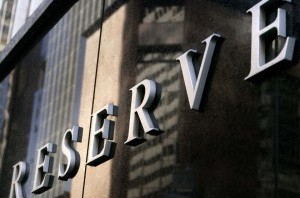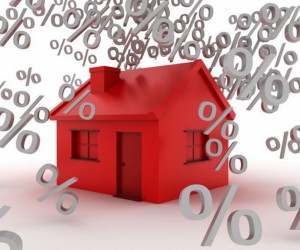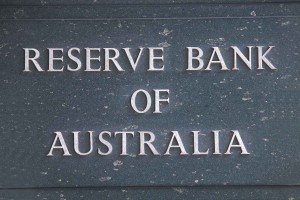It’s been a hotly debated topic within the finance world but Australia’s most respected experts and economists believe Blockchain will be widely adopted in the near future, according to finder.com.au.
The experts shared their views in the latest finder.com.au RBA Survey.
The cash rate is expected to stay on hold tomorrow (07/11/2017), with all 30 participating experts and economists predicting a hold and most forecasting the cash rate will remain static at 1.5% for a while yet.
Just six panellists are expecting the cash rate to move in the next six months, with five members of this group indicating a potential rise in April or May next year.
Graham Cooke, Insights Manager at finder.com.au, says no cash rate move is in sight – for now.
“The Reserve Bank is likely to stay in its wait-and-see mode for a while, with experts indicating that lower than expected inflation may not support a cash rate move for the time being.
“For the last few months, experts have maintained the next cash rate move would be an increase. However, the tide may be changing, as four economists — or 14% of those surveyed — are now expecting a drop,” he says.
The Reserve Bank of Australia (RBA) recently said it doesn’t expect cryptocurrencies to be adopted for widespread transactional use. With Bitcoin expected to hit an all-time high of $10,000 AUD in the coming days, panellists commented on what cryptocurrencies mean for the finance sector.
Almost all of those surveyed on this topic (13, 93%) do not expect digital currencies like Bitcoin to be adopted for widespread use.
However, most panellists (16, 94%) believe blockchain, the instantaneous ledger system used by digital currencies, will have widespread adoption in the financial sector and economy.
“While you may never pay for your daily coffee using Bitcoin, the blockchain system that backs the currency is here to stay,” he says.
Mr Cooke believes the implications of the system are widespread, and will have applications both within and outside the financial sector.
“The blockchain allows transactions to be recorded instantly and simultaneously across the globe, which proves who owns what at any point in time.
“Once you send an asset to someone by blockchain, you no longer have that asset yourself, and this is recorded simultaneously across thousands of computers, making the transaction record undisputed and unhackable.
“From peer-to-peer payments to international money transfers to digitally recorded property assets, there are many applications for blockchain. Both businesses and consumers can benefit from faster transaction processing and fewer transfer fees that would normally be charged by an intermediary — it’s a massive game-changer,” he says.
Here’s what our experts had to say:
Michael Yardney, Metropole Property Strategists: (Hold) "Our housing markets have slowed down, so there is no need for the RBA to raise rates, and even though inflation is below target and the economy is flat, they dare not lower rates in fear of fuelling the property markets."
Jordan Eliseo, ABC Bullion: (Hold) "Despite concerns about a slowdown in retail sales growth over the last few months - the RBA still appear confident in the outlook for the Australian economy, though their rhetoric around tightening policy has changed appropriately. We still see the next move as down, but it will not come until Q1 2018 at the earliest."
Tim Nelson, AGL Energy: (Hold) "Little change in conditions."
Shane Oliver, AMP Capital: (Hold) "RBA expectations for stronger growth ahead, high levels of business confidence and strong employment growth all argue against a rate cut. But a slowdown in the housing cycle, risks around consumer spending, weak wages growth and inflation and the too high Australian dollar argue against a rate hike. So the most likely outcome is rates remaining on hold - out to late 2017 at least."
Paul Dales, Capital Economics: (Hold) "The economy and inflation are not strong enough to warrant higher interest rates, but nor are they weak enough to justify lower interest rates. "
Michael Blythe, CBA: (Hold) "Low inflation means [there is] no rush to act."
Peter Gilmore, Gateway Credit Union: (Hold) "Looks like we are in an inflation trap."
Scott Morgan, Greater Bank: (Hold) "Domestic economic data is mixed and does not yet support a move."
Mark Brimble, Griffith Uni: (Hold) "Economy is still struggling to gather any meaningful moment."
Shane Garrett, Housing Industry Association: (Hold) "No need to increase rates at this time: economic growth has to have enough space to recover to its trend rate and inflationary pressures are weaker than expected."
Paul Bloxham, HSBC: (Hold) "Inflation is still below target."
Alex Joiner, IFM Investors: (Hold) "Economic signals are mixed, especially outside the labour market. Added to this inflationary pressures are subdued and wages growth are anticipated to remain soft."
Michael Witts, ING Bank: (Hold) "The RBA is comfortable with the current setting of rates and does not appear to be in a rush to change the policy settings. the low CPI print supports a further extension of stable rates."
Leanne Pilkington, Laing+Simmons: (Hold) "Recent data pointing to flat price growth and subdued clearance rates reinforce the case for a hold decision. Of course, the housing market is more complicated than this, with different suburban markets performing according to their own fundamentals."
Matthew Tiller, LJ Hooker: (Hold) "Despite strong employment numbers, inflation and wage growth remain soft. Property price growth has moderated, relieving pressure on the RBA to shift rated."
Stephen Koukoulas, Market Economics: (Hold) "RBA will continue to ignore weak inflation and wage results and instead create a perception of concerns about financial stability. A rate cut is long overdue.”
John Caelli, ME: (Hold) "The RBA has signalled the next move will be up."
Mark Crosby, Monash University: (Hold) "Pressures to cut rates have diminished to near zero, so the question now is on the timing of rate increases - which should hinge on international developments."
Jessica Darnbrough, Mortgage Choice: (Hold) "The domestic and international economies are starting to show signs of improvement, which could encourage the Reserve Bank to lift the cash rate at some point over the coming months. That said, for right now, inflation remains below target, which will no doubt lead the Board to leave the official cash rate on hold. "
Chris Schade, MyState Bank: (Hold) "The economy is showing some promising signs, including the drag on growth from the unwinding of the mining investment boom being near its end, business confidence and conditions solid, strong levels of public infrastructure work, dwelling construction plateauing as opposed to declining, and quite high levels of job creation. There remain some weak spots however (e.g. wage growth, consumer confidence in their personal finances), and some areas of the economy that are in transition (e.g. housing market following numerous regulatory changes - albeit localised conditions vary widely). Overall, while it appears the economy is on the right track, the RBA will likely continue to hold the cash rate at 1.5% and allow the economy some more time to develop. On current information, it would seem probable the RBA will hike in 2018, most like the second half."
Saul Eslake: (Hold) "The RBA's made it clear that it has no desire to cut rates further in the absence of any currently unforeseen negative shocks; while the data flow since the last meeting won't have done anything to prompt
Jonathan Chancellor, Property Observer: (Hold) "The recent decisions of central bank board and other regulatory authorities may have faded in time, but are still working their way through the economy, so no need just yet for any fresh adjustment."
Matthew Peter, QIC: (Hold) "The lack of inflation pressure takes out-of-play any chance of rate hikes over coming months. Rate cuts are off the table unless the labour market slumps and the housing market has showed sustains signs of cooling."
Noel Whittaker, QUT: (Hold) "The housing boom is tapering off – there is no reason to raise rates to stifle demand."
Nerida Conisbee, REA Group: (Hold) "Economy still not strong enough to increase and housing too volatile to cut."
Janu Chan, St.George Bank: (Hold) "RBA is becoming increasingly optimistic in regards to the labour market and a recovery in non-mining investment. However, low inflation, slow wage growth, spare capacity still evident within the labour market suggests the RBA is still a way from raising rates."
Brian Parker, Sunsuper: (Hold) "Not enough has changed in the last month for them to change course at this point."
John Hewson, UNSW: (Hold) "Economic signs point to the cash rate staying where it is for quite a while, perhaps even for the next twelve months or more."
Clement Tisdell, UQ-School of Economics: (Hold) "An increase may have a negative impact on economic sentiment at a time when the housing market effects have to be carefully managed."
Other participants:
Bill Evans, Westpac: (Hold





















